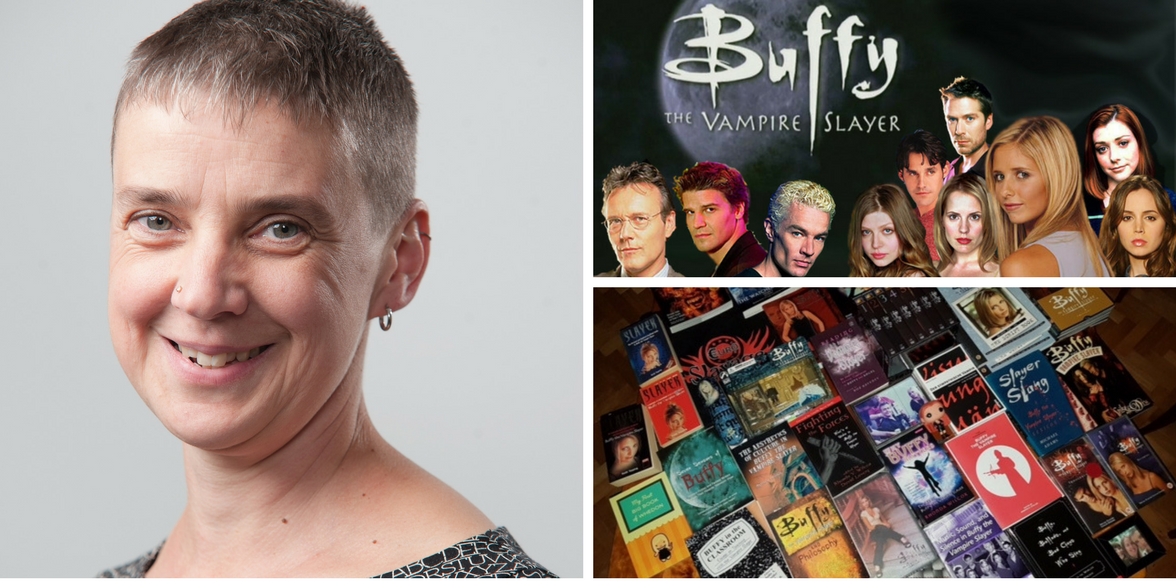The Buffy Effect – Lorna Jowett on the profound influence the Vampire Slayer had on her life
Date 10.03.2017

It’s been 20 years since the first episode of Buffy the Vampire Slayer aired and Dr Lorna Jowett, Reader in Television Studies at the University of Northampton, shares her experience of how the TV series made a huge impact of her personally, as well as professionally.
“When I watched the first episode of a new TV series called, bizarrely, Buffy the Vampire Slayer, I had no idea that it would shape my academic career, bring me long-time friends and affect my life so profoundly.
Admittedly, I teach classes on television to university students, so that fact that I still talk about, watch and refer to a TV series that is 20 years old may not be a surprise. I am, however, surprised and pleased when students—even before taking my classes—tell me about their love for the series, despite it first airing before some of them were born.
Buffy is not just part of my professional life, and a defining strand in my academic research profile; it is also part of my personal life and part of my identity. I quote lines from Buffy regularly, and it’s a source of instant bonding when someone in the conversation returns the quotation in kind. Studying Buffy but also enjoying it as a viewer and a fan, has been the starting point for some decades long friendships, as well as long-term academic collaborations.
As a feminist, Buffy also has special meaning in my life. From the first time I watched it, it spoke to me—as it did to many other viewers—about power, about female experience, and, ultimately about female power and female empowerment.
Many of the students who talk to me about watching Buffy, as children or as young adults, also see its representation of women specifically (and gender identities more broadly) as the basis of its attraction for them. It returned to public consciousness when the Twilight saga—novels and films—became widely popular, with Buffy fans comparing Twilight and its main characters Bella and Edward with Buffy and its characters, especially in terms of gender identity and female empowerment.
The influence of Buffy and its representations persists and it is regularly namechecked by new series attempting something new with gender or genre, or both. Buffy started out as The Chosen One, just the latest in a line of young women ‘fated to fight vampires and demons.’
By the end of the series’ seven-year run on television both Buffy and the series had changed the game. Buffy’s speech in the series finale, promising all potential Slayers a share in her power, is often seen as a feminist statement. ‘Every girl who can have the power, will have the power,’ she says. Even here, though, there is an acknowledgement that this won’t be easy, something many women, young and old, recognise from their own experience.
The rousing speech does not end with an answer, but with a question: ‘Are you ready to be strong?’”